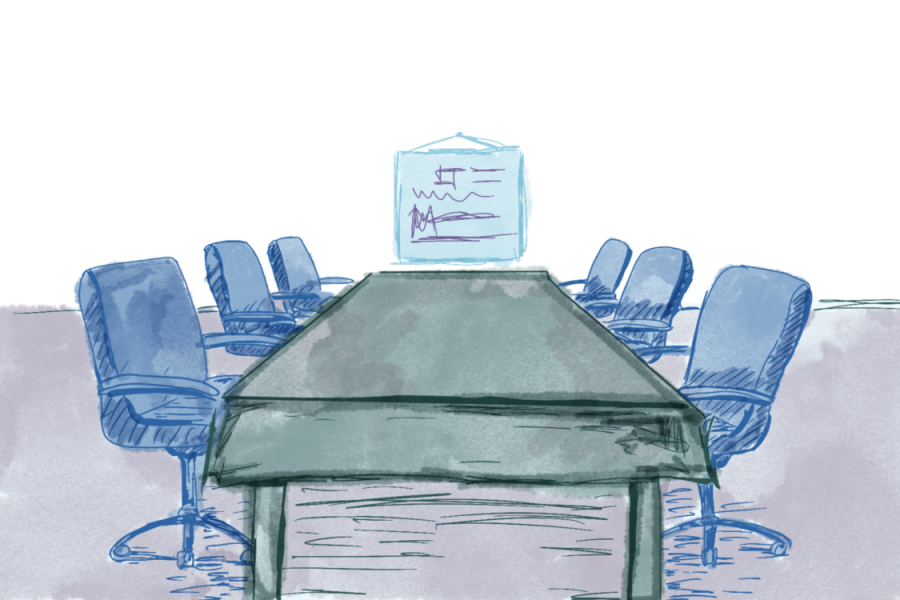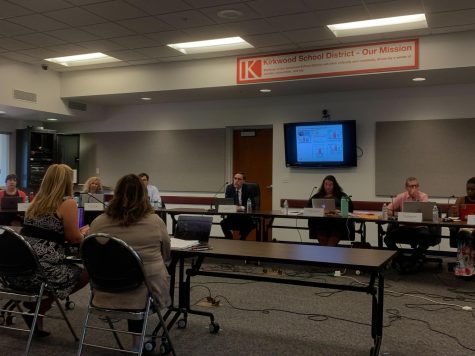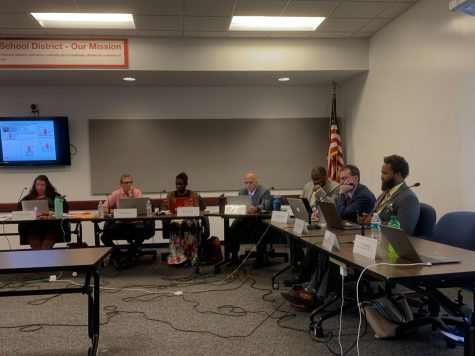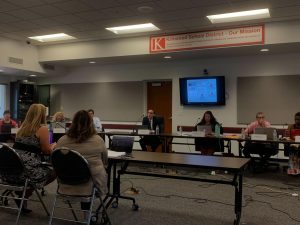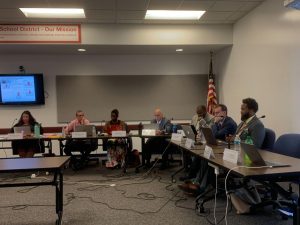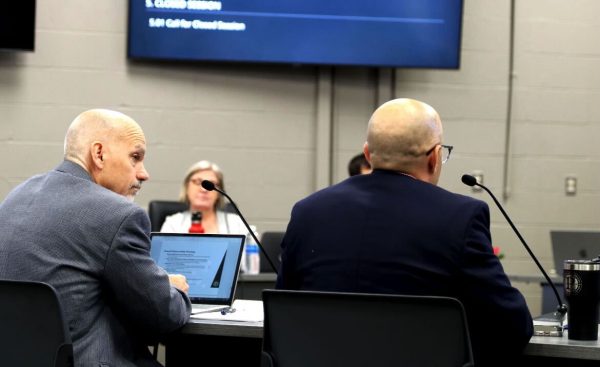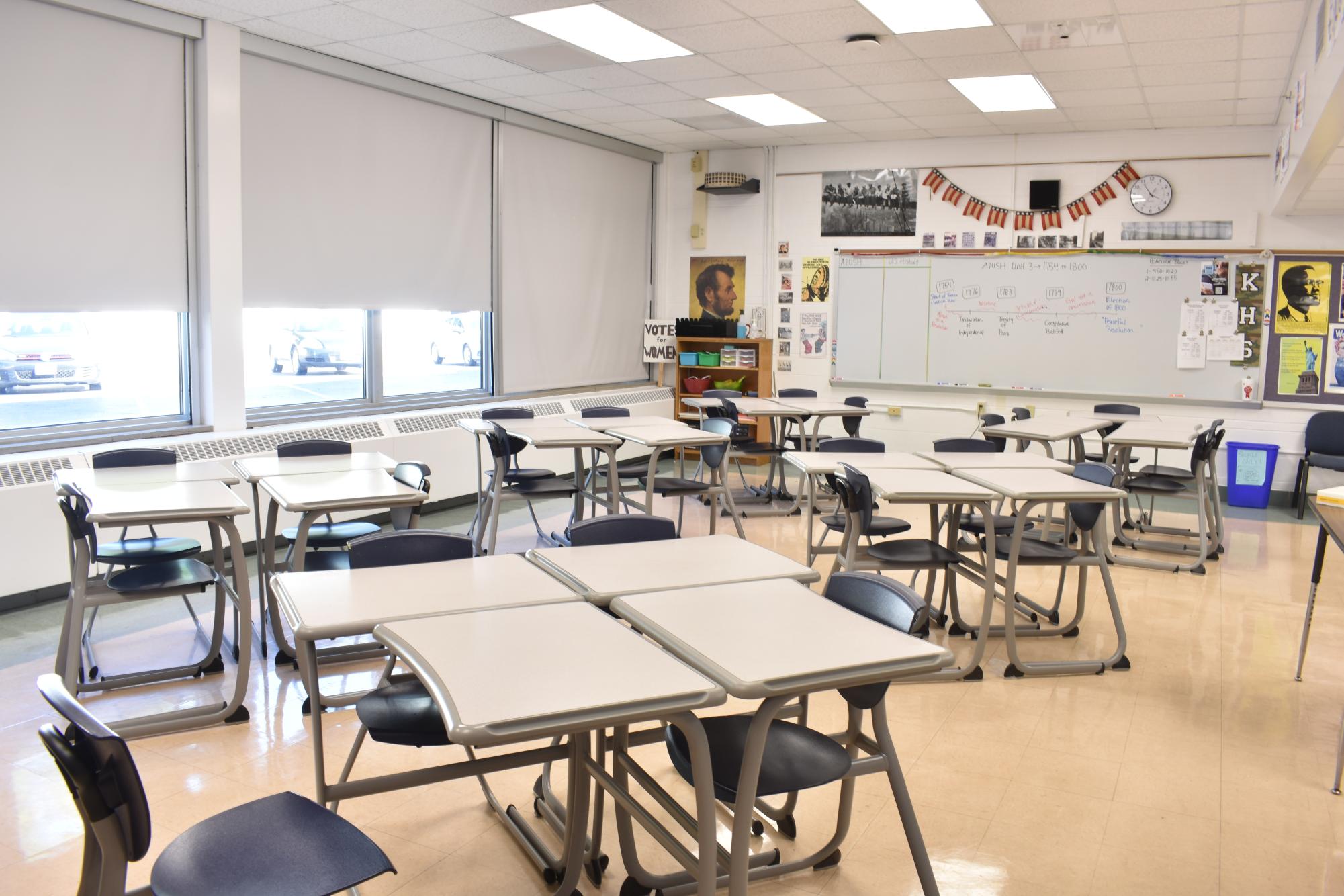BOE cuts incentives for retiring teachers
In Sept. of 2022, the BOE voted to reduce the incentive plan for retiring teachers by more than half.
At the beginning of the school year, the Kirkwood Board of Education (BOE) voted to approve KSD’s recommendation to reduce the incentive package for retiring teachers. According to the KSD handbook, this incentive package is part of the Early Separation Incentive Plan (ESIP), and has been around for approximately 20 years to provide qualifying teachers, support staff and administrators with a bonus upon retirement. This year, the incentive package is equivalent to 30% of teachers’ contracted salary, and is approximately half of last year’s amount.
“I think [many teachers] are disappointed because [ESIP] has been there over the entirety of most [of their] careers,” Amy Barker, English teacher, said. “As somebody who will be retiring in a few years, I would love if ESIP were [still] available to me and if it were the [same] package from a few years ago, but I don’t have any control over that.”
Barker has been teaching at KHS for 26 years and is part of the Kirkwood National Education Association (KNEA). As co-president, she is constantly looking to ensure that teachers’ rights are being upheld and working conditions are reasonable. The ESIP decision was made by KSD and was approved by the BOE, leaving teachers with no say about whether or not they agreed with reducing the incentive plan.
“My frustration is that we don’t have collective bargaining, which would allow us more power, not just with ESIP, but [with other things like] class sizes and working conditions,” Barker said. “I can understand that from [the BOE’s] point of view, giving teachers less money upon retirement is good for the budget, but it isn’t necessarily something teachers like.”
I think [many teachers] are disappointed because [ESIP] has been there over the entirety of most [of their] careers.
— Amy Barker
Kirkwood is one of the few districts in the area that does not have collective bargaining, meaning teachers do not have much negotiation power with the district. Carolyn Fogarty, math teacher and Kirkwood Missouri State Teachers Association (KMSTA) member, has been teaching at KHS for 23 years and said teachers should have had a voice in the decision making process.
“One of the big things [the BOE should have done] would [have been] to ask teachers their thoughts [and] communicate where we’re headed and why,” Fogarty said. “[It’s] frustrating because there was a standard, almost an expectation, [about] what was going to happen at retirement. Recently, that standard has changed, and our voice [is not being] heard.”
According to Barker, ESIP was initially created as a way for KSD to save money and attract qualified staff. Because teacher’s salaries increase each year, the longer they have been teaching, the more they are paid. The incentive plan motivates teachers to retire and is therefore cost-saving for the district, according to Barker. However, teachers only receive the bonus if they announce their retirement before Dec. 1 of their final school year in order to give the district time to find a qualified replacement and an early jump on hiring.
One of the big things [the BOE should have done] would [have been] to ask teachers their thoughts [and] communicate where we’re headed and why.
— Carolyn Fogarty
While ESIP has been beneficial for both teachers and KSD alike, Barker said it will most likely be eliminated within the next few years. According to Fogarty, the lack of an incentive program can make it harder to attract new teachers to the district and current teachers may consider leaving for other districts with better pay. The BOE was contacted for comment on the topic, but declined.
“If you look at the number of [teachers] who apply for jobs here, it’s less than it was 10 years ago,” Barker said. “The KNEA has been noticing there are fewer people applying for teaching jobs [here]. [This can be] because of things happening specifically in Kirkwood [or just] the nationwide trend that fewer people are going into education.”
Donna Canan, English teacher, has been teaching at KHS for 22 years. She is retiring after this year, then plans to teach at the college level.
“[Cuts in the incentive plan] did play a role in my retirement,” Canan said. “I was disappointed [when I heard about ESIP, but] I appreciate my time here.”
KSD’s salary used to be one of the highest in the area, but according to Lisa Shinabargar, social studies teacher and KNEA member, it has fallen in the past few years. She said this, paired with reduced benefits, may threaten KSD’s reputation as a “destination district.”
“KSD’s pay is not the best in the state, but it is reasonable and competitive,” Shinabargar said. “What I have found in the past few years [is that] some of the benefits have gone down. [Namely], they have reduced the incentive [plan]. It is still a decent retirement program, but unlike other districts, Kirkwood doesn’t pay teachers much for the sick days they have accumulated [upon retirement]. So other districts that [do would] give them more money [when they retire].”
If you look at the number of [teachers] who apply for jobs here, it’s less than it was 10 years ago.
— Amy Barker
According to Shinabargar, teachers receive $15 for each sick day they have accumulated. Sick days are valued at different amounts depending on the district.
“[When] I taught at Rockwood Summit, they [paid me] back at [my] base salary for each [sick] day,” Shinabargar said. “I worked there for two years, [and when I] left, I had accumulated 5-10 personal days. I got paid back $150 per day because that’s how much they were valued at. Kirkwood [only pays] $15, or a very low amount.”
This year, ESIP is a percentage of the salary. Last year, it was a dollar amount, and in prior years, it was a dollar amount plus insurance. To many teachers’ frustration, the BOE has not made it clear to teachers what ESIP’s future will look like. However, Superintendent Dr. David Ulrich has announced the BOE will have a vote each year to determine if the incentive package should be increased, kept, reduced or eliminated.
“It’s scary [to think that the incentive package might] go away,” Fogarty said. “Some rumors are that it is eventually going to [be eliminated, or] that it might be offered a little bit higher because there’s more teachers they want to get rid of and we’re too expensive. We have no idea. It’s a year by year decision and we have not been told anything about the future.”
Your donation will support the student journalists of Kirkwood High School. Your contribution will allow us to purchase equipment and cover our annual website hosting costs.

She/Her
Hobbies and Interests: tennis, reading, traveling, shopping and writing
Favorite movie: Top Gun: Maverick
Favorite Quote: "Happiness...

She/Her
Hobbies and Interests: font enthusiast, thrift shop god, dog enjoyer
Favorite song: What is Life by George Harrison
Favorite Quote:


